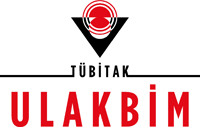AKHISM ORGANIZATION AND ORGANIZATIONAL CITIZENSHIP BEHAVIOR
Keywords:
Akhi, Akhi Evran, Organizational Citizenship BehaviorAbstract
Ahi Evran, with Akhi Organization which is formed in the early 1200’s, introduced significant transformations into the economical, social, cultural and religious life of Anatolia. It would not be wrong to say that Organizational Citizenship Behavior (OCB) concept, which was developed by Denis Organ and his friends in 1983 (Bateman and Organ, 1983; Smith etc., 1983) and has an important place in the Management-Organization literature, could be seen in the formation of the organizational structure led by Akhi Evran nearly 800 years ago. This paper aims to follow the historical paths of OCB, that can be defines as “voluntary individual behaviors which helps the efficient operation of organization but also is not a subject of official reward system directly or indirectly (Podsakoff vd., 2000)”, in the managerial practices of Akhi Organization. Within the context of main principles of Akhi Organization such as excellence, honesty, maturity, virtue, it could be said that some behaviors attributed to individual by contemporary management literature can also be seen in Turkish management literature years ago.
The main aim of the study is to investigate the relationship between Akhi organization and Akhi Culture based on Akhi Evran’s principle and Organizational Citizenship Behavior. This study consists of three parts. In the first part, organizational citizenship and its dimensions, afterwards Akhism, Akhi organization and its main principles will be discussed. And in the final part, the relationship between main principles of Akhi culture and five well-known dimension of OCB which was put forth by D. Organ will be presented. While such an investigation on the relationship between these two chronologically different conceptual frameworks, it is tried to be handle Akhism within its Turkish and Islamic basis and without breaking to its connection with the context of the era. Consequently, this study identifies significant theoretical parallelism between each dimension of OCB and principles of Akhi Culture.









